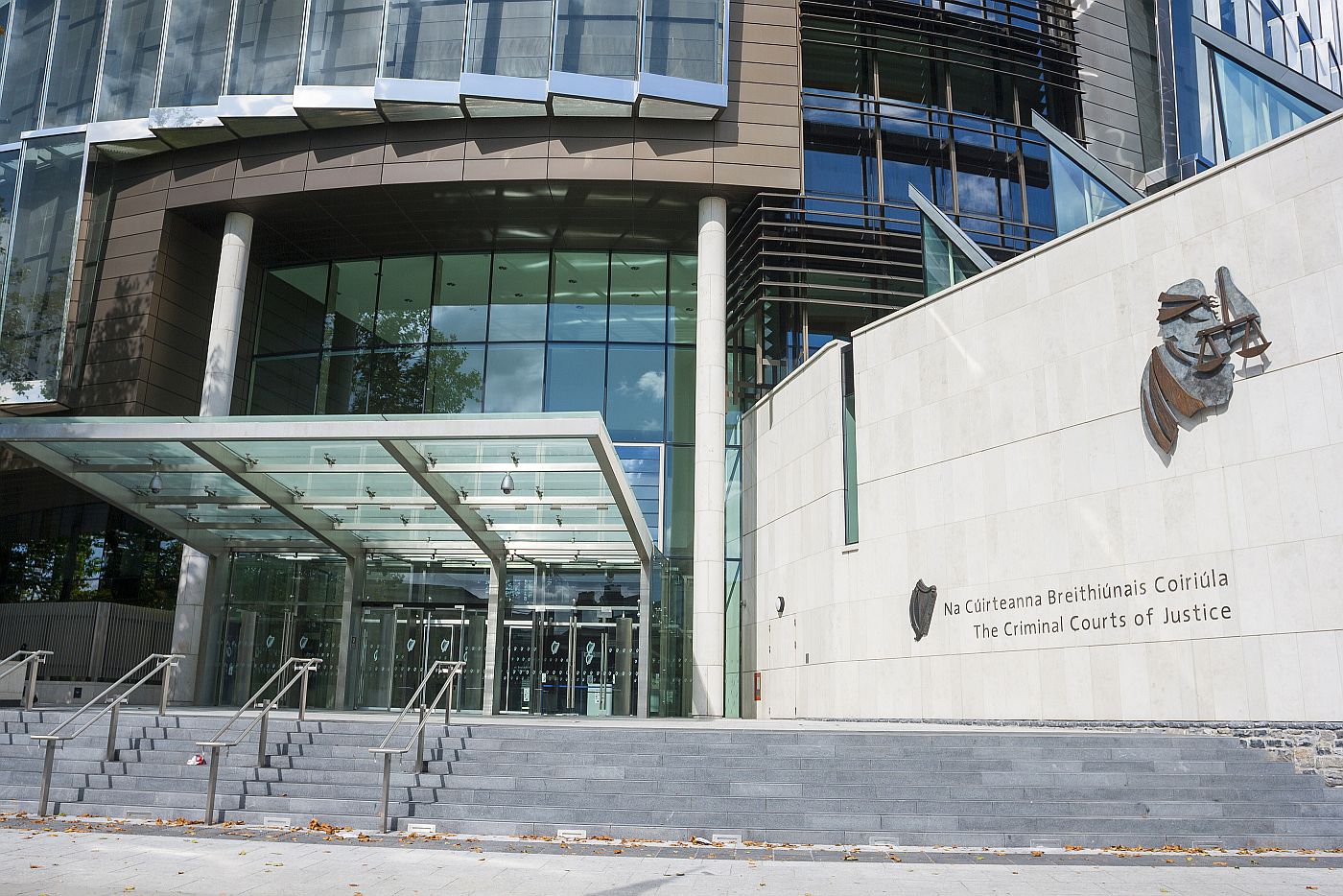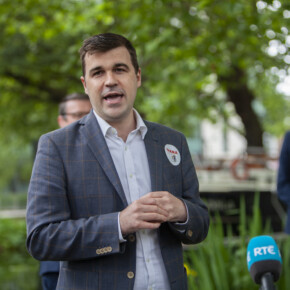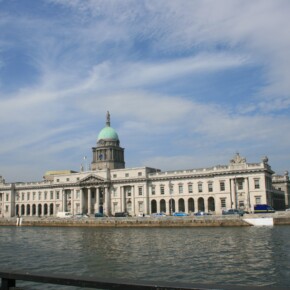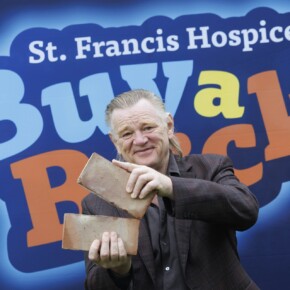Company operating a number of pubs is fined in a Health and Safety Authority prosecution
Padraig Conlon 20 Jul 2021
By Fiona Ferguson
A company operating a number of pubs has been fined €7,500 in a Health and Safety Authority prosecution for exposing two staff members to the risk of inhaling asbestos fibres.
Dublin Circuit Criminal Court heard that a director of Telstar Investments LTD, along with two staff members, had removed a small number of “unstable” ceiling tiles over a common courtyard area being redeveloped by another company due to a fear that they may fall on staff or customers.
Work on the ceiling by the contractor had stopped after a warning sticker had been found and the tiles were later confirmed to contain brown asbestos.
Telstar Investments LTD had a guilty plea entered on it’s behalf that, being an employer on June 24, 2016, at Findlater House, Findlater Place, Cathal Brugha Street, Dublin 1, it failed to conduct work activities in such a way as to ensure in so far as was reasonably practicable the safety, health and welfare at work of it’s employees.
The particulars of the offence outline that this occurred in respect of the removal of ceiling boards which contained asbestos and the cleaning up of associated debris thereby exposing two employees to the risk of inhaling asbestos.
Telstar Investments LTD operated three licensed premises, including Fibber Magees and The Living Room, on the ground floor of the building, and were not associated with the development works going on nor were commercially benefiting from them.
Judge Martin Nolan said on this particular weekend a contractor on a large development at the building of which Telstar Investments LTD had licensed premises on the ground floor had found asbestos.
He said a director of Telstar Investments LTD, Mr Noel Murray, was “a man of direct action” and decided to remove the roof tiles and make the area safe. He said the area affected was important to the company as staff and customers moved in and out of it.
The judge noted Mr Murray was not aware of the particular dangers of this form of brown asbestos. He said the men wore suits and masks but not the specialized equipment necessary to render the work safe.
Judge Nolan said he agreed that the culpability of the company was at the lower end. He said they had been presented with a problem and directly responded to it. He said it would have been preferable to close the area.
He noted the guilty plea by the company, the co-operation of the agents of the company with the Heath and Safety Authority (HSA), the lack of previous convictions and that the company were encountering very difficult times.
Judge Nolan imposed a fine of €7,500 on the company and levied costs against them, with four months to pay.
Health and safety Inspector Frank Kearns told John Berry BL, prosecuting, that Telstar Investments LTD and it’s three licenced premises were the ground floor tenets of the premise at Findlater Place.
He said that there was a large scale hotel redevelopment taking place on the floor above it.
Mr Kearns said that during work on a ceiling over a common courtyard area which was used as emergency exit, delivery and spill over area for the licensed premises, the possible presence of asbestos was detected.
The building contractor, McAleer & Rushe UK Ltd, carrying out the work has already been fined €100,000 for failing to carry out an asbestos risk assessment in this part of the building works.
Work on the area was stopped on June 23 and a specialised asbestos removal company were contacted but were unable to get access to the site and did not put up protective shielding until Tuesday June 28 when the site was closed off and made safe.
A prohibition order was put in place for the area at that stage which Telstar Investments LTD fully complied with.
The court heard that prior to that a director of the company, Noel Murray, was made aware that the tiles which had been partially removed would have to be fully removed. Mr Murray was worried about fragments of the remaining ceiling tiles falling and hitting patrons or staff over the weekend.
On Friday June 24, Mr Murray operated a forklift truck with a wooden pallet and two staff members removed the remaining tiles from the area. The area was then swept up and the material placed in bins.
Mr Kearns estimated that about 80% of the ceiling boards had already been removed by the contractor.
Mr Murray later met with the HSA and told them that while he was being informed of the situation in the courtyard by the site foreman a small part of a remaining ceiling tile had fallen and he felt it was unsafe.
He said the remaining part of the ceiling was unstable he had made “a judgement call” to remove the tiles. He said he had spoken to the two staff members and they agreed it was dangerous. He said they insisted on removing the slabs instead of him. He operated the forklift.
Mr Murray said the group were being sued at the time by a customer who had a piece of plaster board fall on them in a separate incident and this was on his mind.
The men wore protective suits, which although they offered some protection, were not suitable for the removal of asbestos.
Mr Kearns said the material was later confirmed to be brown asbestos or amosite. He said any inhalation of this material can be very serious and the latency period can be up between 20 and 40 years.
The company has no previous convictions.
Mr Kearns agreed with Michael O’Higgins SC, defending, that the contractor had carried out asbestos surveys on other areas of the building where it had been dealt with but not in this location.
He agreed that Mr Murray had employed their own asbestos specialist afterwards and expended €38,500 in a clean up. He agreed the company was fully co-operative with the HSA.
Mr Murray told Judge Nolan that he accepts it was the wrong thing to do, but did not realize at the time how serious it was. He said he apologised wholeheartedly for what he did.
Mr O’Higgins said the company had no part in the development, but had been running the licensed premises below the works and were concerned about the risks to those coming in and out.
He submitted the contractor should have taken more decisive action, but the prohibition order was not in place until the following Tuesday. He said the main contractors who were fined €100,000 were “light years” in responsibility away from his client who had no commercial gain from the development and made a wrong call.
He said the decision was taken and Mr Murray was “not an armchair general” but was in there himself in the work
Mr O’Higgins submitted that hospitality had been one of the worst effected areas by the pandemic and profitability and stability were a long way off. He said the business would be “treading water” for a long time to come.
He asked the court to take into account that the company had already paid out a significant amount of money “cleaning up someone else’s mess.”











